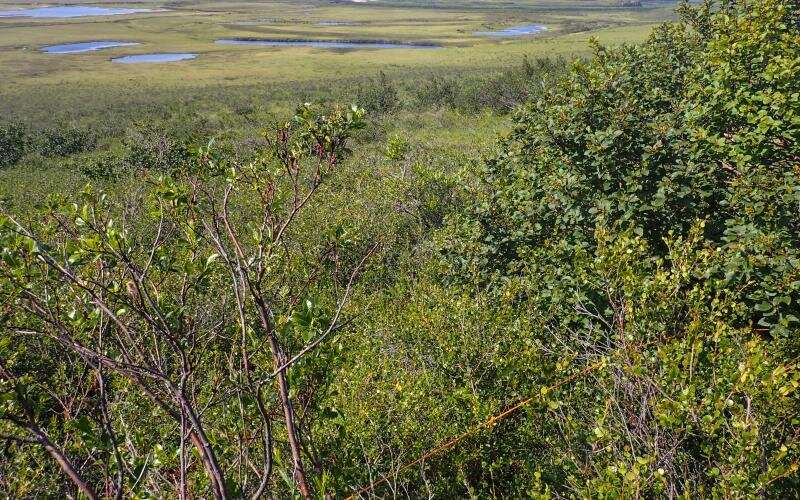An ORNL team added new plant data to a computer model that simulates Arctic ecosystems to help scientists better predict how northern vegetation will respond to climate change. Credit: ORNL, U.S. Dept. of Energy
Scientists at Oak Ridge National Laboratory added new plant data to a computer model that simulates Arctic ecosystems, enabling it to better predict how vegetation in rapidly warming northern environments may respond to climate change.
Plants impact the environmental cycling of nutrients, water and carbon dioxide, making them vital components of Earth system models. To improve an Arctic ecosystem model that included only a few shrubs and grasses, ORNL integrated data about lichens, moss and shrubs collected from Alaskan field sites.
The expanded model incorporated the growth patterns of the added plants, showing that tall shrubs will grow more under warming conditions than low-growing plants.
"The ways plants respond to climate change will affect what happens to the large quantities of carbon in the Arctic," said ORNL's Benjamin Sulman. "Our model should allow us to make more accurate predictions about what those whole ecosystems will do."
More information: Benjamin N. Sulman et al, Integrating Arctic Plant Functional Types in a Land Surface Model Using Above‐ and Belowground Field Observations, Journal of Advances in Modeling Earth Systems (2021). DOI: 10.1029/2020MS002396
Provided by Oak Ridge National Laboratory
























